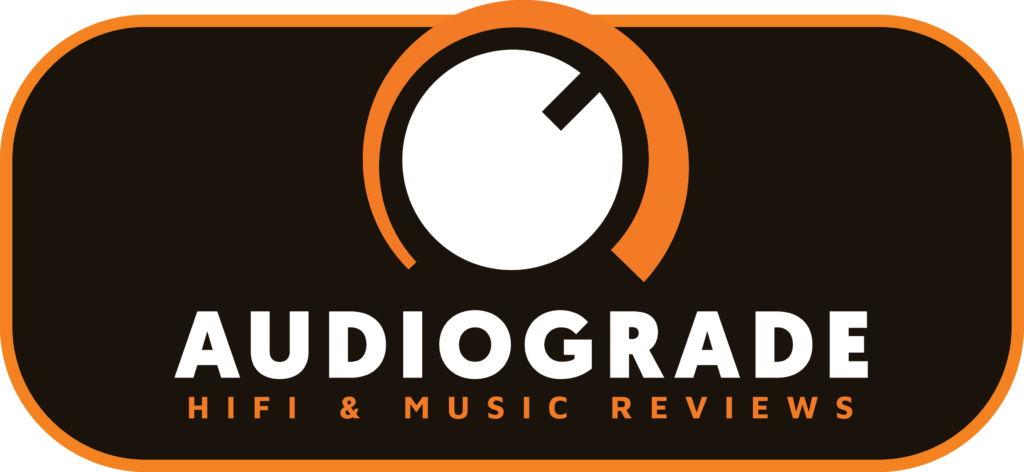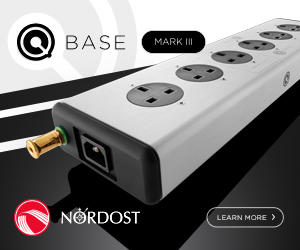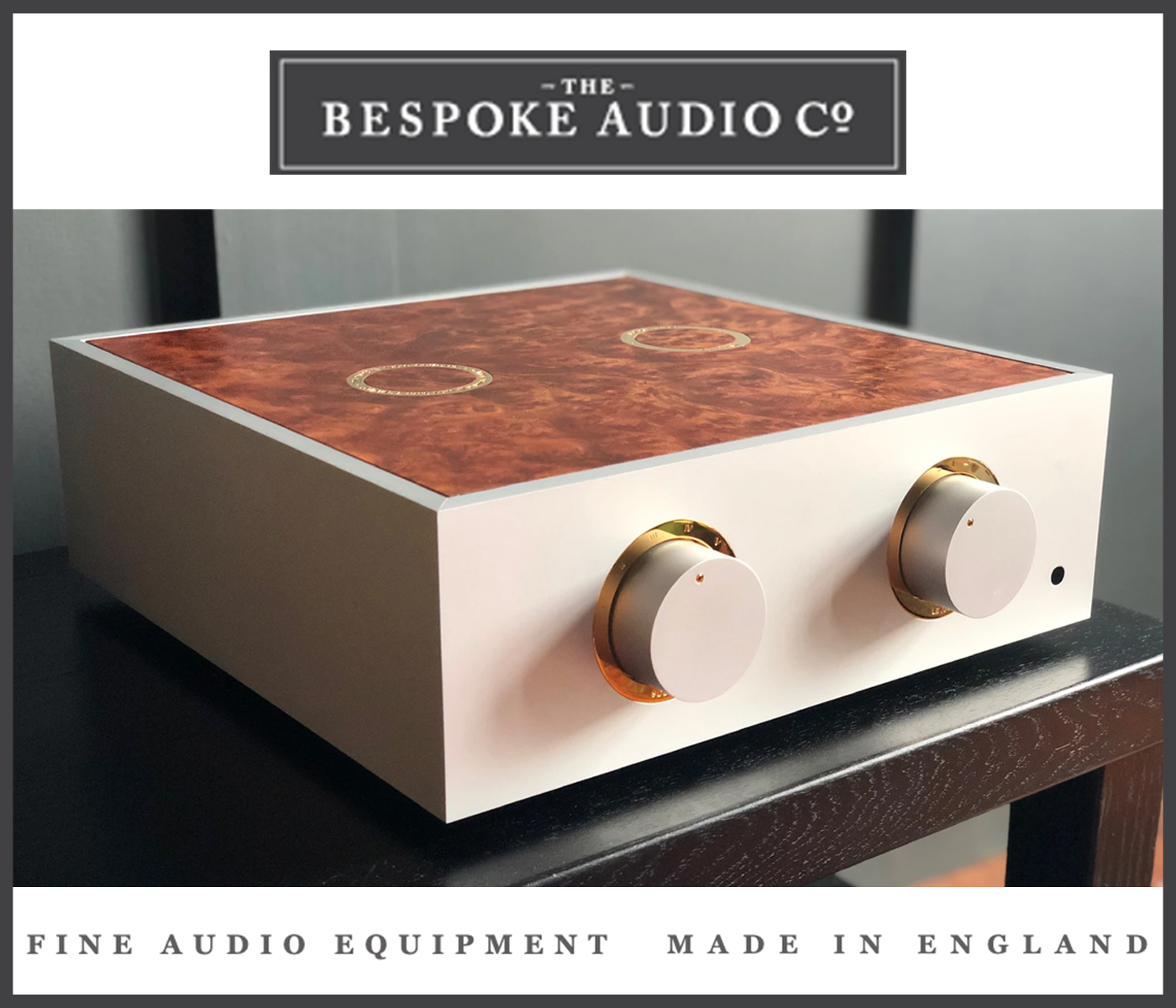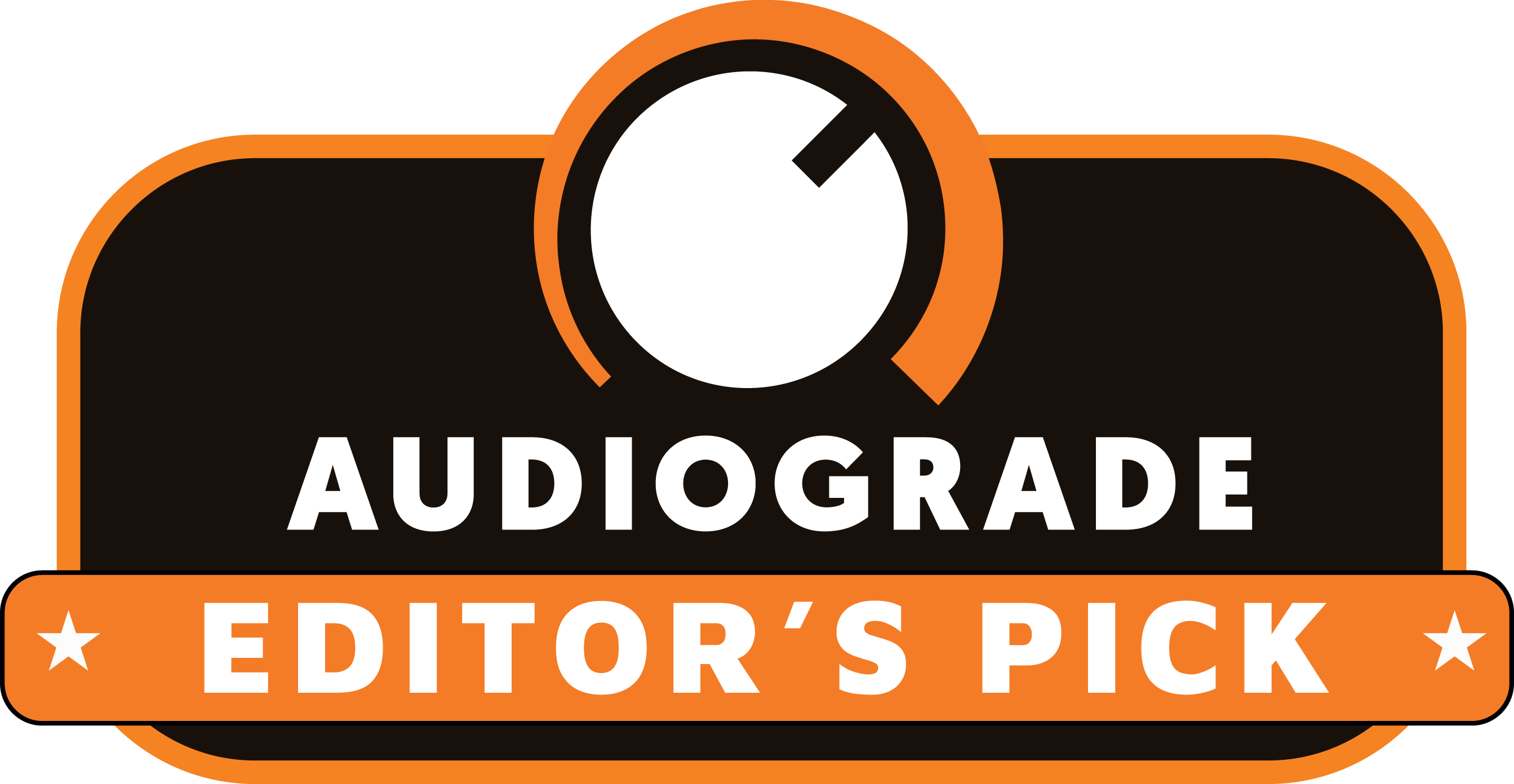When SME announced it would no longer be selling its hi-end tonearms separately and only supplying them with its turntables, it sent shockwaves through the vinyl community. Being the go-to reference wands for many leading brands for so long, they’d almost taken their supply for granted.
But with every hifi cloud, comes a silver lining, as the move paved the way for other manufacturers to get a bigger slice of the tonearm pie in a territory SME had dominated for so long.
And this includes Huntington based AVID HiFi, which has been making its own SME and beyond rivalling decks for decades, followed by phono stages, amplifiers, cartridges and speakers in more recent years.
Read our exclusive interview with AVID Founder Conrad Mas.
In fact the only element missing in its analogue audio chain for a complete AVID system was a tonearm, so when news came of the release of its own arm design, it made complete sense.

As the brand’s flagship tonearm, the Nexus is bold and solid looking, which is everything you’d expect from AVID
But instead of one model we got two, with the more affordable Altus model at £1,500 sitting below the no holds barred Nexus at £4,500 that’s under review here. And while four and a half grand may seem a substantial chunk of readies for a tonearm, it’s still around a grand cheaper than what SME was charging for its Series V before it went off sale.
Precision at work
While the Altus and Nexus have some shared elements, it’s their differences that account for the difference in price, including a beefed up bearing housing and easy arm height adjuster for the latter, plus titanium tubing in the arm wand over the Altus’s alloy tube.

Black and silver livery ensures the Nexus is a perfect aesthetic match for Avid’s striking turntable range
And for the Nexus it’s not just any old titanium with ‘aircraft grade’ added to the marketing blurb for extra hype, as after critical listening AVID has insisted upon GR9 grade (which, coincidentally, is widely used in the aerospace industry while also being renowned for its strength to weight ratio, weldability and formability, making it ideal for tubing).
Despite its superior strength, AVID hasn’t scrimped on its wall thickness at 1.3mm which is thicker than many rival titanium arm wands for added stiffening.
The headshell is milled from solid aluminium which AVID says is an ideal material to complement cartridges, with its mass and shape optimised for minimal reflections.
At the bearing end, a thicker polished stainless steel sleeve forms the rear portion of the wand which is matched to the bearing shaft (to eliminate thermal expansion and ensures optimal vibration-transmission).

At 4mm, the Nexus’s headshell is thicker than most and includes recessed slots for cartridge screws alongside a sturdy precision milled finger lift
The Nexus isn’t super light as tonearms go, tipping the scales at 880g (compared to 660g for the Altus and 720g for SME’s V as a comparison). But this is no bad thing, as it also accounts for the Nexus’s 18g effective mass (EF), placing it closer to the centre of the medium EF scale (where under 11g is usually deemed low mass and over 25g high mass).
Compare this to most medium EF arms, which in reality tend to be closer to the lower end (such as SME’s V at 10-11g) and on paper, the AVID can cater for a much wider range of cartridges including lower compliance types, although it’s not quite in Denon DL103 territory.
The headshell is a one piece design, being permanently fixed to the main wand for rigidity, meaning there’s no easy way to adjust azimuth.
While some vinyl fettlers may mourn this, I’m of the opinion that at this level if you’re having to adjust an arm’s azimuth you’re compensating for errors in a turntable’s design, which should be engineered to exacting tolerances so that a partnering arm’s headshell is parallel to its platter surface right from the off.

Chunky bearing housing continues the over-engineered feel with hi-tolerance ball races inside. Note the silver bias adjuster rod protruding from the lower housing
At the bearing end, good old high spec ball races are the order of the day in both the horizontal and vertical shafts, having undergone machining and grinding to AVID’s exacting standards, drawing on its decades of turntable building expertise.
Inside the critical tonearm cable is made from an ultra high-grade oxygen-free copper that’s then coated with pure silver, which was chosen following extensive listening tests for its natural, smooth and detailed sound.
On the pull
While this may seem a traditional approach to controlling the movement of a tonearm, in contrast its anti-skate is a thoroughly modern approach that’s unique to AVID.
Named ‘Adjustable Progressive Bias’ and operated via a stubby rod, this gets right back to the basics of what anti-skate is trying to achieve. Instead of applying the same set force over a cartridge’s journey as it makes its way from the outer grooves to the final tracks near the centre of a record, AVID’s bias compensator gradually increases its force to compensate more accurately for the increased centripetal force (pull) on the needle as it gets closer to the centre. This, says AVID, helps to reduce inner groove distortion by some way, as the side pressures acting on the stylus at any given time are more evenly balanced.

Best of British, the Nexus awaiting its counterweight on my SME 20/2 deck
Formed from brass, the counterweight is a sliding circular design with two internal ‘o’ rings affording it plenty of grip on the stub end of the arm wand, weighing 192g as standard with alternative weights available on request to ensure a wide range of cartridges can be catered for. There’s no printed scale for tracking force though which keeps its design nice and clean, but also means you’ll need an accurate downforce gauge to set the Nexus up.
Unboxing the arm reveals it’s as nicely packaged as you’d expect it to be, with a quality arm to phono cable included alongside a mirrored alignment protractor plus allen wrench and SME adapter plate.

Unboxed and ready for installation, despite its hi-end design, the Nexus is simple to set-up
Bucking the trend
While some might say installing anything other than an SME arm on an SME deck is turntable heresy, it actually makes complete sense, by testing how universally adaptable AVID’s arm is to see how it behaves away from own home turf.
Installation on my SME 20/2 begins with fitting AVID’s branded armboard. For many manufacturers the baseplate would simply be a basic means to an end, however AVID has gone the extra mile in its engineering which feels exquisite, much like the rest of the arm.

Supplied armboard for SME type turntables. The Nexus can also be fitted to Rega type mountings too
To ensure the arm locates properly for a secure fit and to help establish a correct tracking angle, the baseplate includes a small internal allen headed clamping bolt that tightens against a slot in the back of the arm pillar.
Setting the arm height is achieved using a large alloy cog-like winding ring that’s finely threaded at the arm’s base, which needs to be done before the baseplate’s clamping screw is finally tightened.

View from the rear showing baseplate and threaded riser nut, note the cutouts in the threaded pillar which the armboard securing bolt clamps against
Cartridge fitting is as straightforward as you’d expect, although the headshell mounting plate is a little shorter than most and with the cartridge tags being packed in behind it, wider/longer bodied pick-ups will be a snug fit (Denon’s DL103 for example just about goes in, but leaves little room for fine aligning).

Cartridge tags are top quality with tightly fitting sleeves that make for a secure fit, so you’ll need a firm and steady hand to connect them up
Once up and running the final pieces of the puzzle are correct alignment using the supplied mirrored plate and adding tracking force by winding the counterweight for an aft, and thanks to the snugness of its fit, micro adjustment is easy to achieve to 0.01 of a gram without any risk of the weight moving over time.

A Benz Micro ACE SH cartridge getting ready for duty
Setting anti-skate is a bit more manual than most, as AVID recommends winding the progressive bias rod screw to its stop and then unwinding it six full turns, followed by listening to music for mistracking in each channel with the cartridge two thirds across a record, before fine-tuning by ear if necessary. This proved correct for me, with an extra tenth of a turn making sure both channels outputs sound evenly balanced, hence it’s worth experimenting to find your ultimate sweet spot.
Performance
Partnering gear includes a Primare R35 phono stage, Rotel Michi X5 amplifier and a range of speakers including ATC SCM100PSL and Dali Epikore 11. Cartridges chosen represent moving-magnet plus high and low output moving-coils that have impressed us the most in recent years, including MoFi’s MasterTracker, Benz’s Micro ACE SH and Goldring’s Ethos.
There are some tonearms that simply shine with some cartridges like young lovers destined for each other, but with other pick-ups there’s a mismatch that’s as obvious from the off as stiring fish into porridge. Thankfully the AVID isn’t so fickle, being more widely accommodating than most I’ve tested when it comes to partnering pick-ups.
With the Benz bolted on, its delicious delicacy is brought out across the music and with the Goldring, it’s the detail that really gets you, highlighting why for many, there’s no substitute for the musical magic that a moving-coil can summon when fitted on an arm that’s got the chops to really serve it.
Hearing Lana Del Rey’s Let The Light In featuring Father John Misty from her globally acclaimed Did You Know There’s A Tunnel Under Ocean Blvd LP across both pick ups really underlines this. The Benz is allowed to fill the soundstage with its dreamy texture, yet with the Goldring it’s the refined edges of guitar strings and vocal harmonies in the track that gets the hairs on the back of my neck standing to attention. The wider point being that what I’m hearing here is more of the cartridges in play and less of the arm’s influence, as the Nexus provides a neutral platform for which ever cartridge is gracing its headshell.

AVID’s supplied Omega arm to phono cable features features four separate OFC single crystal copper cores sheathed in spiral twisted HDPE (high-density polyethylene) with 5 din connector and RCA outputs. Balanced (XLR) connections can also be specified
The Nexus’s beefy build also translates into its musical delivery, as there are few arms I’ve heard that can achieve its levels of low frequency grip and dynamics. Hearing Bob Marley’s Concrete Jungle from 1973’s Catch A Fire for example driving the ATCs is an experience to treasure. The track’s driving bass rhythm is delivered with a bombastic punch that’s pit of the stomach stuff, with a sense of scale and depth that underlines analogue’s enduring appeal with recordings of this era.
Swapping out the moving-coils for MoFi’s MasterTracker MM pick-up further hammers home the versatility of the Nexus. MoFi’s cartridges typically like higher mass arms (MoFi’s own being around 30g EF) to get the best out of them, with lesser arms resulting in a thinner and more opaque soundstage.
But when partnered with the AVID arm, of the three cartridges in use this is the one I find myself listening to the most because of the sheer drama the Nexus allows the MoFi to project as it’s let of the leash. Pearl Jam’s Black from their 1991 debut Ten LP for example sounds richly layered with masterful production, yet there’s a rawness to it that’s untamed and tantilisingly dangerous as the track builds to Vedder’s guttural vocals.

MoFi’s big and dynamic sounding MasterTracker is an ideal bedfellow for the AVID arm
In summary
While AVID’s tonearms have been a longtime coming, hearing the Nexus proves it’s been worth the wait.
A deceptively simple design in looks and features, it’s been expertly produced to be one of the most versatile hi-end arms on the market for real world use. What’s more this isn’t just an add on for AVID’s own turntables and can hold its own on any turntable that’s up to its standards.
If AVID’s aim was to boldy move into tonearm territory that’s typically been the preserve of its rivals, it’s safe to say it’s more than exceeded that aim with the Nexus, as this arm is outstanding.










